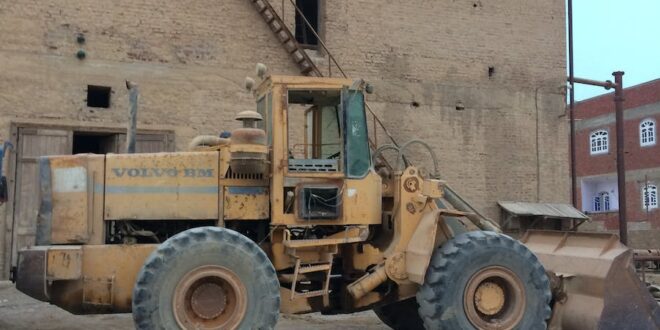Renting heavy construction equipment has become an increasingly common and popular option for contractors and construction companies of all sizes. Rather than investing large sums of capital to purchase heavy equipment outright, renting provides a more cost-effective and flexible alternative for many projects. With rented equipment, contractors can take on jobs that would otherwise require prohibitive upfront investments in expensive equipment. The many benefits of renting heavy machinery rather than buying make it an attractive choice that more construction companies are utilizing.
There are compelling advantages to temporarily renting out heavy equipment like bulldozers, backhoes, excavators and cranes versus purchasing them. The high costs of buying, insuring, transporting, storing, and maintaining heavy equipment over ownership make rental an appealing substitute. Construction companies are able to complete projects requiring major equipment without saddling their balance sheet with expensive assets requiring maintenance even when idle.
Here are some of the main pros and benefits of renting, rather than buying, heavy construction equipment for contractors and construction companies:
Lower Upfront Costs
- Renting heavy machinery such as excavators, backhoes, bulldozers and cranes requires no major down payment or upfront capital investment that purchasing would require
- Companies can pay only for the exact time period they need the equipment, avoiding significant storage and maintenance costs during periods when equipment is not in use
- Renting eliminates major depreciation losses companies would face when purchased equipment decreases in value over time – rented equipment is maintained by the rental company
Access to Specialized Equipment
- Rental companies maintain a broad inventory of equipment larger than most contractors could afford to buy outright
- Contractors can get exactly the right type and size of equipment needed for specific construction jobs, rather than making do with their owned equipment
- Renting enables easy access to expensive specialized equipment such as large cranes, heavy bulldozers, motor graders, and tower cranes without a huge capital outlay
Flexibility and Convenience
- Companies can easily scale rental equipment up or down to precisely match project workload needs
- Equipment can be switched out conveniently as different job phases and requirements change over the course of a project
- Rented equipment can be delivered when needed and picked up when done, avoiding hassles of transporting owned equipment continually between multiple job sites
Reduced Maintenance Responsibilities
- Rental companies perform all scheduled maintenance, repairs, and service on rented equipment as part of the rental contract
- This relieves companies from the time, labor and costs of routine maintenance associated with their own equipment
- Companies avoid equipment downtime from breakdowns, malfunctions or the need for major repairs
- Rental equipment gets regularly inspected and serviced by the leasing company to minimize breakdown risks
- Newer, well-maintained rental equipment has far fewer mechanical issues and less downtime than older owned equipment
- Companies using rental equipment no longer need dedicated mechanics and maintenance staff to service their own equipment fleet
- Spare parts, supplies and maintenance facilities are provided by the rental company as needed
- Freed from maintenance duties, companies can better focus their resources on core construction operations
Rented equipment transfers all maintenance responsibilities fully to the rental company. This eliminates the substantial maintenance burden companies would otherwise face servicing a large owned equipment fleet. It also mitigates operational risks from equipment failures or breakdowns. The maintenance included with rentals ensures optimal uptime and productivity.
Lower Insurance Costs
- Rental equipment is fully insured by the rental company against all potential risks including damage, theft, loss, or other mishaps
- Companies avoid the substantial annual costs of insuring their own purchased equipment fleet against physical damage, loss, or significant liability claims
- For rented equipment, the rental company assumes the risks and carries the insurance costs to cover damage, loss, downtime, or legal liabilities
- With rentals, companies transfer much of the risk and liability to the rental company and benefit from lower overall equipment insurance expenses
- Rental rates build in the equipment insurance costs borne by the rental company – still usually far less than a contractor self-insuring owned equipment
- Renting equipment on an as-needed basis means companies only pay to insure it when actively renting, rather than year-round as with owned equipment
- Any accidents, incidents or legal issues arising from use of rental equipment are largely the responsibility of the rental company, not the renter
- Companies can rent equipment worry-free knowing potential risks and liabilities are already covered by the rental company’s insurance
In essence, renting heavy equipment allows contractors to offload equipment risks and insurance costs to specialists. This avoids the high costs and administrative burden companies would otherwise face insuring a large owned equipment fleet. The insurance protection included with rentals provides valuable risk management and peace of mind.
Tax Deductions
- Fees for rented equipment are typically tax deductible operating business expenses that can be deducted in the year paid
- In contrast, equipment that is purchased must be capitalized and depreciated over the IRS-defined useful life
- The larger upfront tax deductions available for rented equipment provide significant tax savings and financial benefits
Renting heavy construction equipment has many compelling advantages for contractors and construction companies seeking cost-effective and flexible solutions for major projects requiring heavy machinery. The high fixed costs of purchasing, transporting, storing, insuring, and maintaining owned equipment make rental an attractive alternative without the balance sheet burden.
Renting enables convenient access to a vast range of specialized equipment on an as-needed basis, avoiding unproductive idle time when equipment sits unused. Companies can align rented equipment precisely with project workload, scaling up or down as requirements change. Newer well-maintained rental equipment reduces downtime risks and maintenance hassles compared to aging owned equipment.
With rentals, companies also gain financial benefits from avoiding large capital outlays and the associated depreciation, enjoying greater tax deductions, and transferring risks and liabilities to the rental company. The flexibility, cost management, convenience, and equipment access renting provides make it a smart choice for many construction firms.
Evaluating the complete costs over the equipment lifetime compared to strictly rental fees can clarify the situations where renting heavy equipment is the most logical and financially prudent option. Construction companies that strategically utilize equipment rental for the right projects stand to benefit greatly from the many pros and advantages this option offers.
 Being Human
Being Human




